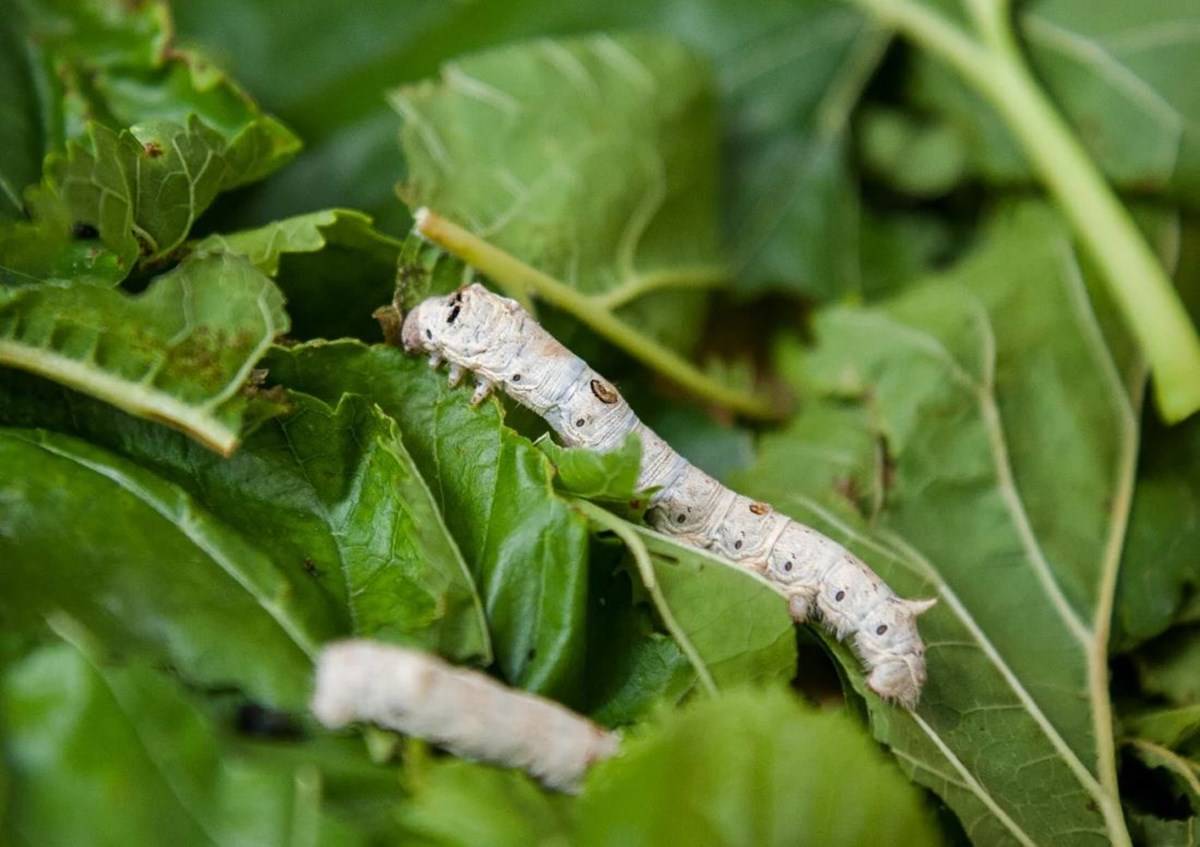
According to a statement from the Department of Information and Public Relations JK, the project, which includes end-to-end interventions, will double the number of cocoons produced in J&K and boost value addition by establishing a cutting-edge automatic reeling facility at Jammu.
These interventions range from improving the availability of mulberry leaves to better seed and worm production. In Jammu and Kashmir, sericulture, or the production of silk, has a long history and a market on both the domestic and international levels.
The area has the potential to grow into a significant silk-producing hub in the nation because of its reputation for producing high-quality bivoltine silk. The industry, however, has encountered difficulties recently, and it was necessary for it to develop and modernize in order to meet the growing demand for superior silk that can compete in the country's export requirements as well as match and replace the silk that is imported.
The only cash crop that guarantees significant returns in a short amount of time is sericulture, giving it a unique position in the rural economy. While highlighting the general outline of the approved project, Atal Dulloo, Additional Chief Secretary of the Agriculture Production Department, noted that although the state produces high-quality bivoltine cocoons, productivity and total cocoon output are low.
Similar to how cocoon yields are only half of the national average, the sector's output has been declining in recent years. The sector will receive a huge boost from improved seed quality, rearing facilities, and cocoon processing, and farm income will increase as a result, he added. One of the 29 projects that were approved by the Jammu and Kashmir government after being suggested by the UT Level Apex Committee for the holistic development of Agriculture and Allied Sectors in UT of J&K is "Technological Interventions to Strengthen Sericulture in J&K."
The Vice Chancellors of the twin agriculture universities of the UT are also members of the prestigious committee, which is led by Dr. Mangala Rai, a former director general of the Indian Council of Agricultural Research. Other members include Drs. P. K. Joshi, secretary of the National Agricultural Statistics Service, Dr. Prabhat Kumar, commissioner of horticulture for the MOA and FW, Dr. H. S. Gupta, former director of the Indian Institute of Agricultural Research.
Lack of access to contemporary technology is one of the biggest issues the sericulture sector is facing in J&K. Many farmers continue to produce silk using outdated techniques that require a lot of time and labour and produce inferior products. According to Manzoor Qadri, Director of Sericulture J&K, this makes it difficult for them to profit from the $250 million export market for Indian Silk. He continued, "The project will ensure that the international fame that J&K silk had attained will be regained."
The project's major interventions include the planting of 10 lakh new mulberry trees, an increase in cocoon production from 700 to 1350 MT, a doubling of silkworm seed production from 8 to 16 lahks, the establishment of 100 new chawki rearing centres for the supply of chawki worms to seri farmers, the employment of 7000 new silkworm farmers, and the development of the skills of existing 15000 farmers.
By establishing a high-value enterprise in the form of an Automatic Reeling Machine (ARM), which will directly benefit 2000 seri-farmers, marketing and value addition support is also being created. The cutting-edge equipment will enable the UT to produce silk of international standard while bringing in higher prices for our cocoons.
The overall goal of the project, according to Dr. Firdose Ahmad Malik, Assistant Professor at SKUAST-Kashmir and a co-author of the proposal, is to strengthen procedures that support the economic development of sericulture farmers in the UT of J&K and foster an environment conducive to growth and investment in the industry.
Overall, the project shows how serious the Jammu and Kashmir government is about reviving and modernizing the UT's sericulture sector. The industry is well on its way to reclaiming its former glory and becoming a significant contributor to the state's economy with the anticipated increase in silk production and quality, as well as the improved livelihoods of those involved.









